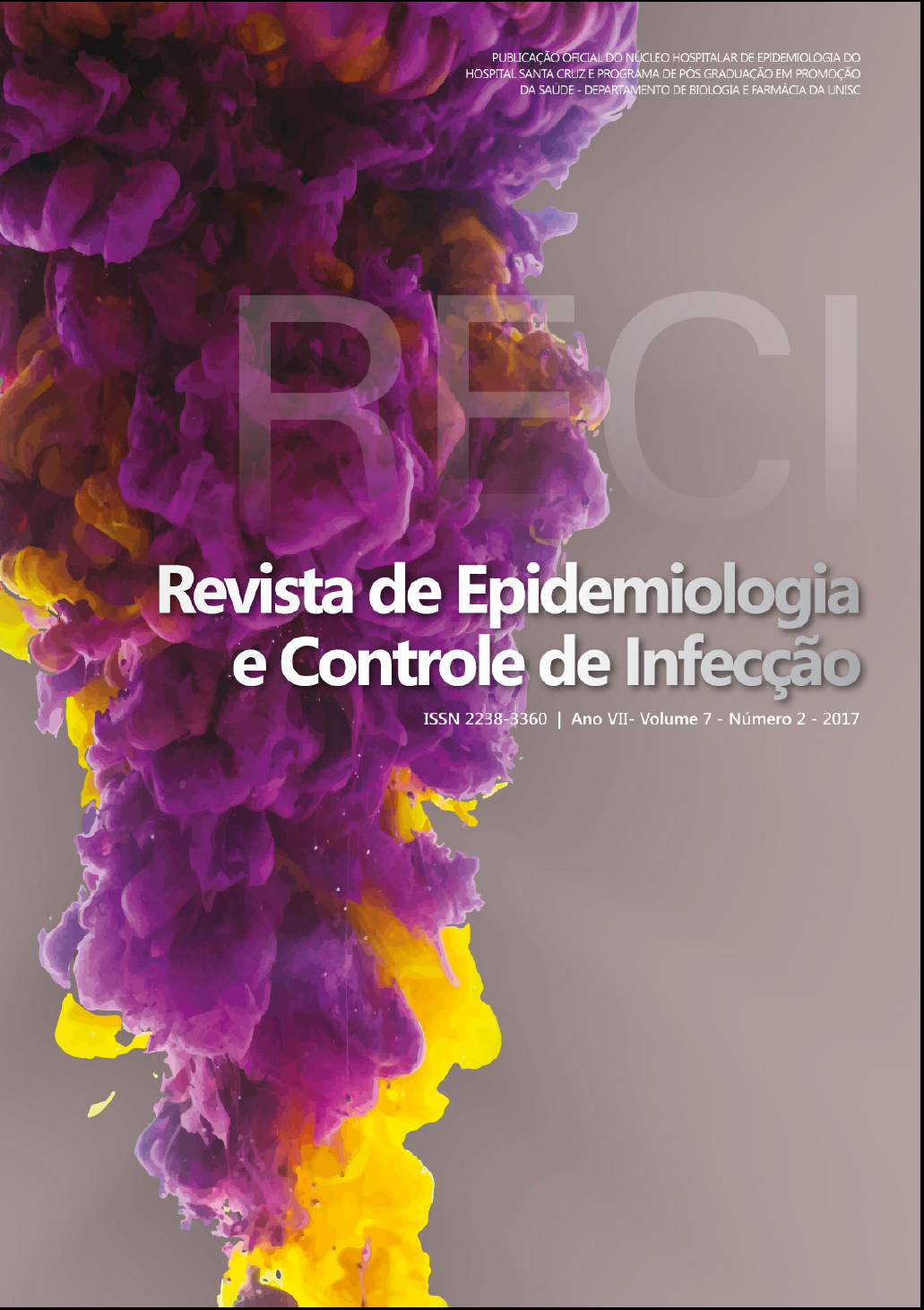Description of cases of carbapenemase-producing Enterobacteriaceae subtypes Oxa-48 and NDM public hospital in Porto Alegre
DOI:
https://doi.org/10.17058/reci.v7i2.6273Abstract
ABSTRACT Background and objective: The bacterial multidrug resistance restless managers and health professionals in global. In this context, carbapenem resistance in Enterobacteriaceae is particularly worrying because of its high mortality (from 40 to 50% in 30 days) and by reduced treatment options. Between the carbapenemases, subtypes KPC (Klebsiella pneumoniae carbapenemase), NDM (New Delhi Metallobetalactamase) and OXA (Oxa-carbapenemase) we found in Rio Grande do Sul. This study aim describing the cases of carbapenemase-producing Enterobacteriaceae (CPE) subtypes OXA and NDM in a public hospital in Porto Alegre, Brazil. Method: descriptive research, using the database of hospital infection control committee at the hospital. Data collection occurred after approval by the Research Ethics Committee in April 2015. The sample comprised the confirmed cases of CPE subtypes OXA and NDM from January to December 2013. Results: We identified 34 cases of CPE, those 22 confirmed cases of subtype OXA-48 and 12 cases of subtype NDM. Among patients with subtype OXA-48, men totaled 77.3% and surpassed the colonization 81.2% infection; mortality reached 54.5% of cases, and the most prevalent organism was Klebsiella pneumoniae (45.5%). Men accounted for 58.4% of NDM, with predominance of colonization 83.3% in isolates of Enterobacter cloacae, whose mortality accounted for 58.3%. Conclusion: the high mortality and prevalence of colonization were relevant in this research. Therefore, early detection of these resistance mechanisms can help to contain its spread. KEYWORDS: Drug resistance, Microbial. Infection control. EnterobacteriaceaeDownloads
Downloads
Published
How to Cite
Issue
Section
License
The author must state that the paper is original (has not been published previously), not infringing any copyright or other ownership right involving third parties. Once the paper is submitted, the Journal reserves the right to make normative changes, such as spelling and grammar, in order to maintain the language standard, but respecting the author’s style. The published papers become ownership of RECI, considering that all the opinions expressed by the authors are their responsibility. Because we are an open access journal, we allow free use of articles in educational and scientific applications provided the source is cited under the Creative Commons CC-BY license.


